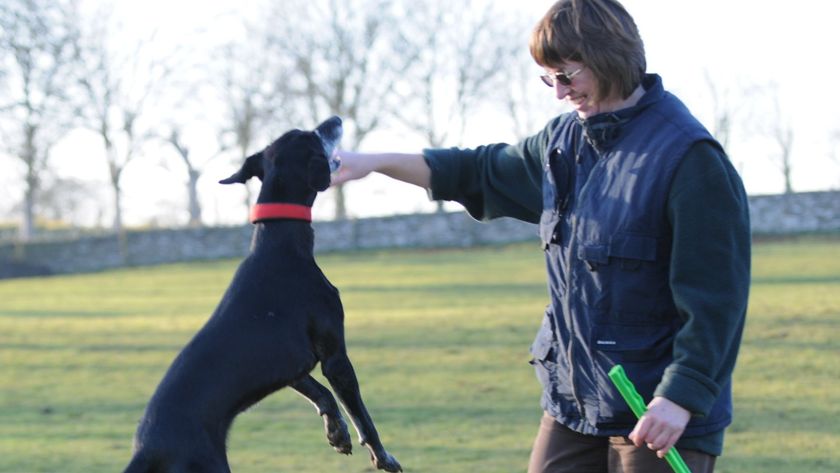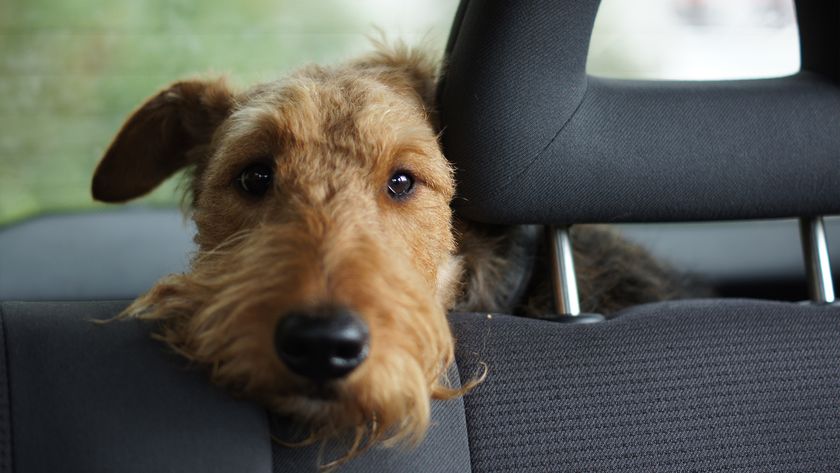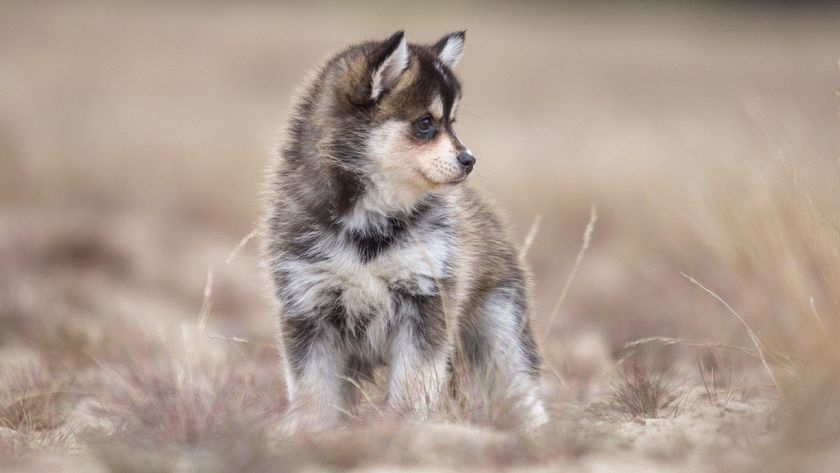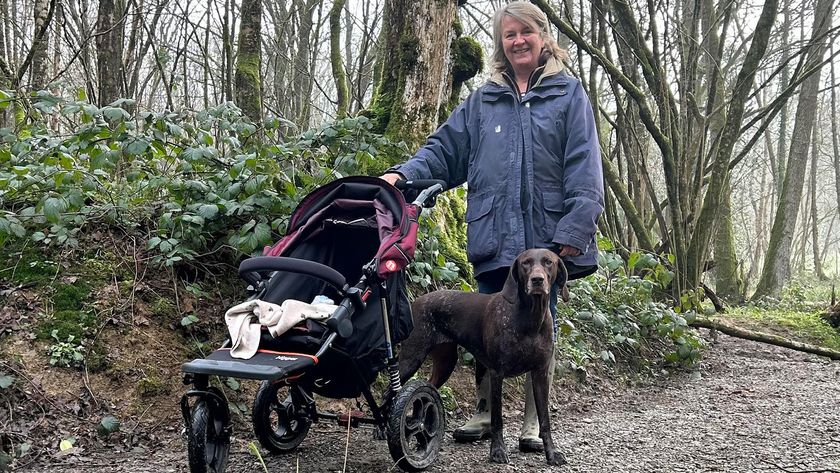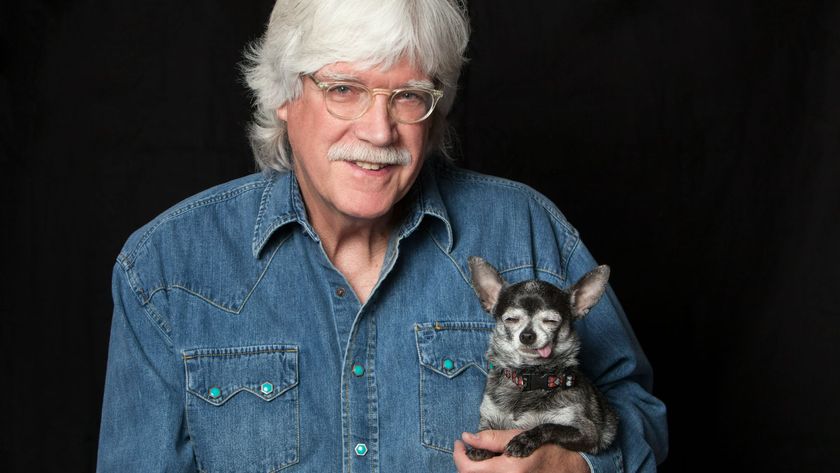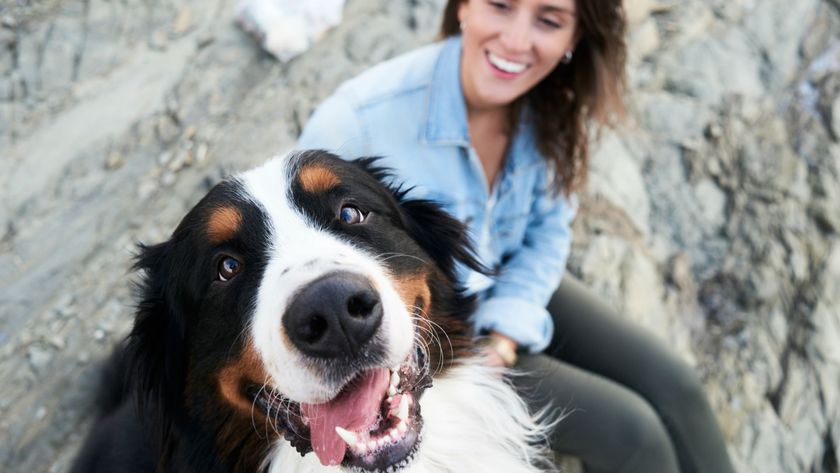Can dogs laugh? How to know if your dog is having fun
Can dogs laugh? We find out if our canine companions have a sense of humor
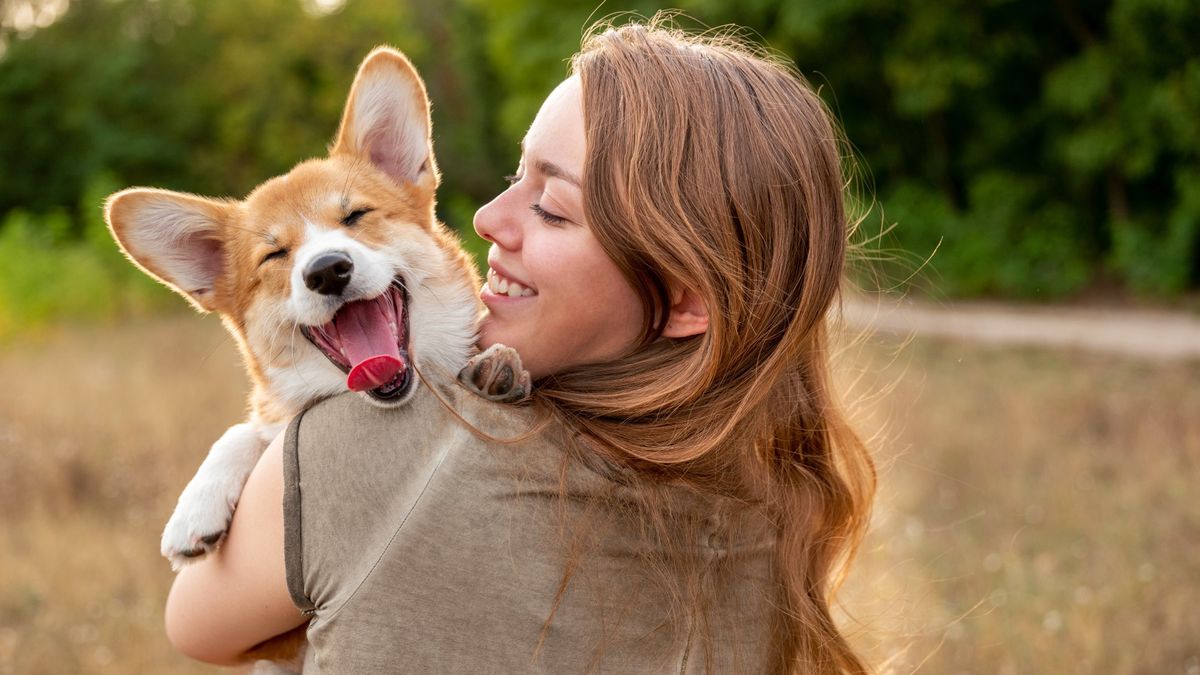
Can dogs laugh? It’s a question you may have found yourself asking if your canine companion’s face lights up every time you throw a ball for them or they break out into a huge grin when they see you getting the longest lasting dog chews out of the cupboard.
But are our fur friends truly able to laugh like we can? Well, while dogs do appear to mirror our behavior and display some of the same facial expressions that we do, most experts agree that dogs can’t laugh in quite the same way we humans do. However, they can make sounds that are very similar to a laugh.
According to a study conducted by the late canine behaviorist and research scientist Patricia Simonet, dogs vocalize during play using four distinct patterns - barking, growling, whining and a breathy forced exhale known as the dog-laugh, which dogs use to invite humans and other pups to play with them.
While the dog-laugh is more of a pant than a laugh in the traditional sense, Simonet found it to have a broader range of frequencies than typical panting and for that reason she concluded it could be considered a type of laugh. Check out our guide to how to play with a dog to see the dog-laugh in action or read on to find out more about doggy laughter.
What noise do dogs make when they laugh?
If you’re expecting a full-on chuckle from your hound, then you’ll likely be very disappointed. Some studies have shown however that dogs do make a noise which can be attributed to laughter.
Canine researcher Patricia Simonet is often credited as the woman who discovered dog laughter, working to “translate” the meaning of various grunts and pants to decipher when dogs found something amusing or funny.
The sound of dog laughter is said to be very similar to panting, and it might not always be obvious when it’s happening - except perhaps if you know your dog extremely well. In Simonet’s recordings - captured while dogs were playing - she found panting with a broader range of frequencies than the panting displayed when dogs were exercising.
Later, in follow-up studies, it was shown that playing those same sounds back to dogs eased anxious behavior in other dogs, or even caused puppies to “jump for joy”.
What makes a dog laugh?

Dogs are said to have a juvenile sense of humor (reminds us of some humans we know). Some studies have also shown that certain types of breed are more susceptible to “laughing” than others - supposedly the Springer Spaniel and Irish Terrier are two breeds with a funny bone, while the Chihuahua, Rottweiler and Pekingese are more serious creatures.
Since studies have shown that playing is the time when dogs exhibit laugh-like behavior, then that’s the best way to attempt to tease a smile from your pup. Different dogs might like different types of playing, but if you're not entirely sure where to start, make sure to check our how to play with a dog guide for some top tips.
You could also learn how to make an exciting dog play area at home, which may just stimulate your dog’s humor, especially if you get down to their level and join in the fun too.
If you’ve got more than one dog, you might find that they’re capable of making each other laugh. You could see it in dog play fighting, or perhaps when they’re both playing with their favorite toys.
When you first bring a dog home, you’ll both be learning lots about each other. As their owner, one of the things you’ll be learning is what makes them tick, what activities do they enjoy, what are their favorite games and so on. Should you play tug of war with your puppy, you might find that it’s one such game that brings out a little laugh. As you play with your dog more and more, you’ll get to know their personality and hopefully discover what they find funny.
Do dogs understand laughter in humans?
Lots of studies have shown that dogs are quite well attuned to human emotions, tone and body language - particularly those of their owners or others in the family that they might be close to. You’ve probably noticed this yourself if you’ve been feeling particularly down and your dog has snuggled in close, or you’ve been feeling excited and happy and your dog mimics your behavior.
As such, there’s every possibility that dogs may recognize in their own way that you’re feeling happy when you laugh. It’s unlikely however that dogs have the nuance to understand exactly what you might be laughing at - so if you're laughing at something silly they’ve done, they probably won’t feel embarrassed that you’ve found their behaviour amusing.
Do dogs laugh when tickled?
Tickling is a great way to illicit a chuckle from a human - but are dogs ticklish? Evidently the simple answer is yes - try giving your dog a soft stroke on their belly, paws, and on the chest. You might not necessarily raise a chuckle, but you’ll both probably enjoy the bonding experience at least.
Most studies and experiences show that when a dog is tickled, they’ll exhibit happy behavior such as rolling around, sticking their tongues out, or demanding that you repeat the behavior should you stop. Every dog is different, but experimenting with finding their best tickle spots is almost guaranteed to be a positive experience for them and for you, and may even elicit a doggy chuckle.
Why do dogs get the zoomies? We spoke to a vet to find out! Plus, these 7 dog sleep positions and what they mean is not to be missed.
PetsRadar Newsletter
Get the best advice, tips and top tech for your beloved Pets
Amy Davies is a freelance writer and photographer with over 15 years experience. She has a degree in journalism from Cardiff University and has written about a huge variety of topics over the years. These days she mostly specialises in technology and pets, writing across a number of different titles including TechRadar, Stuff, Expert Reviews, T3, Digital Camera World, and of course PetsRadar. She lives in Cardiff with her dog, Lola, a rescue miniature dachshund.

